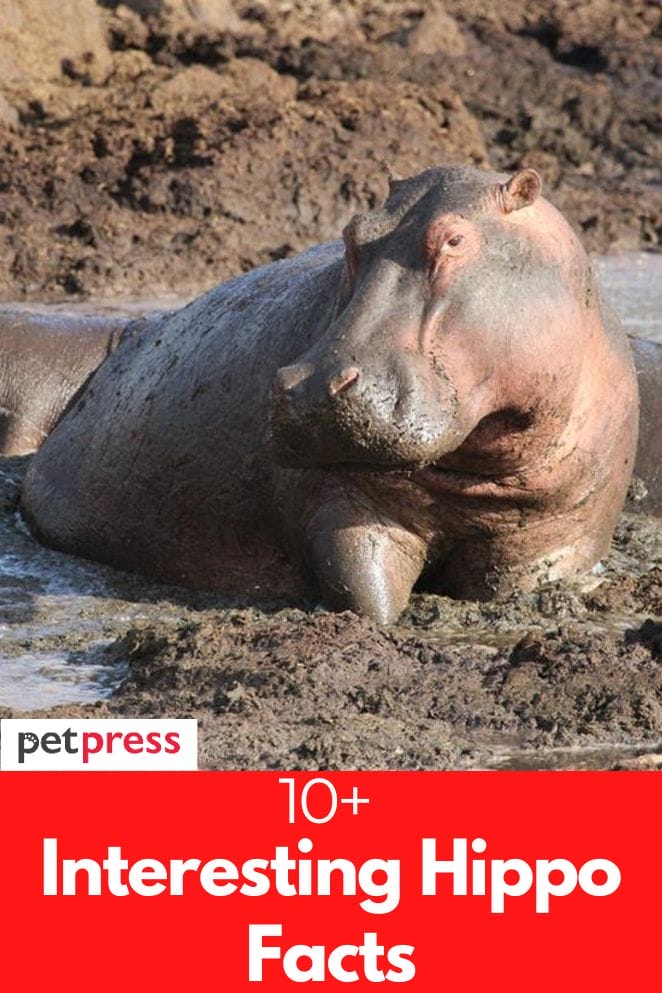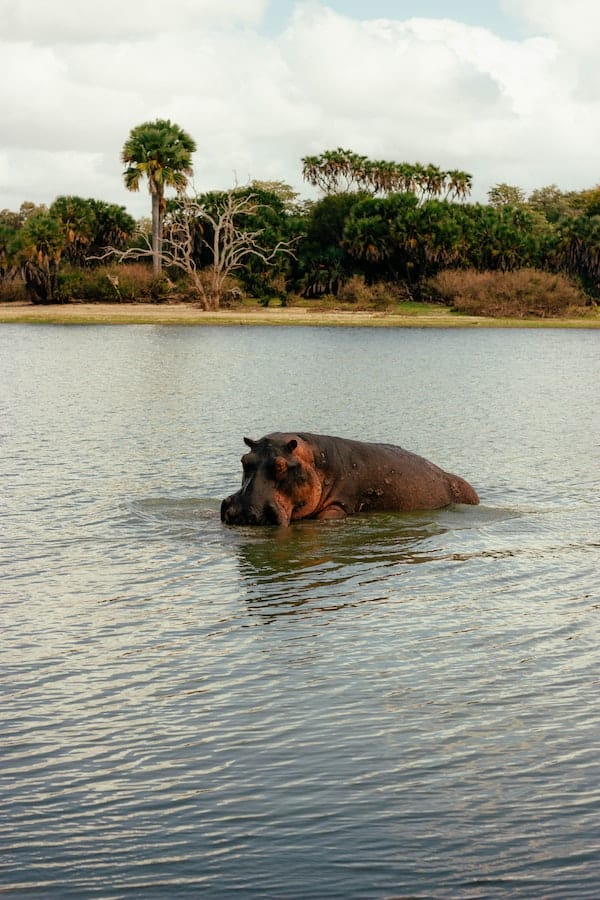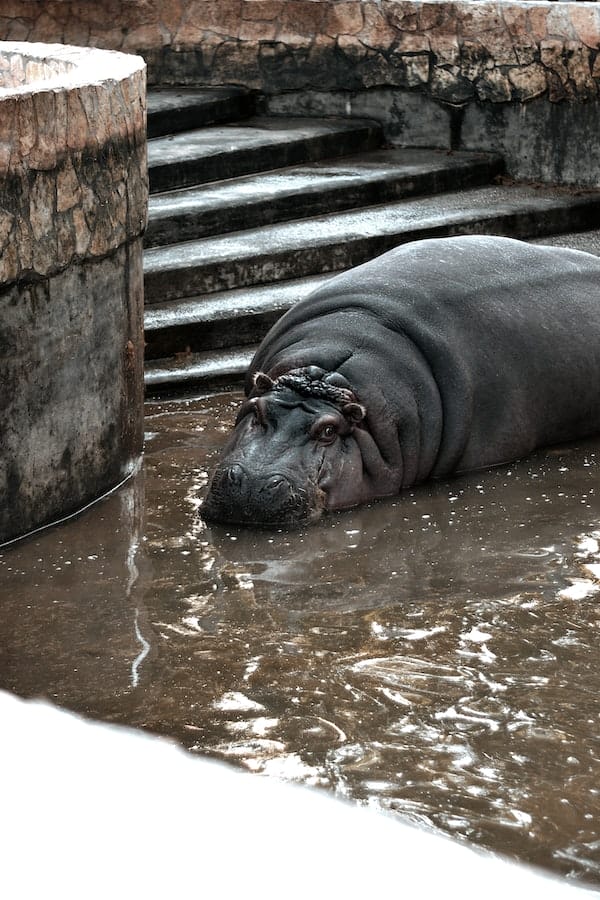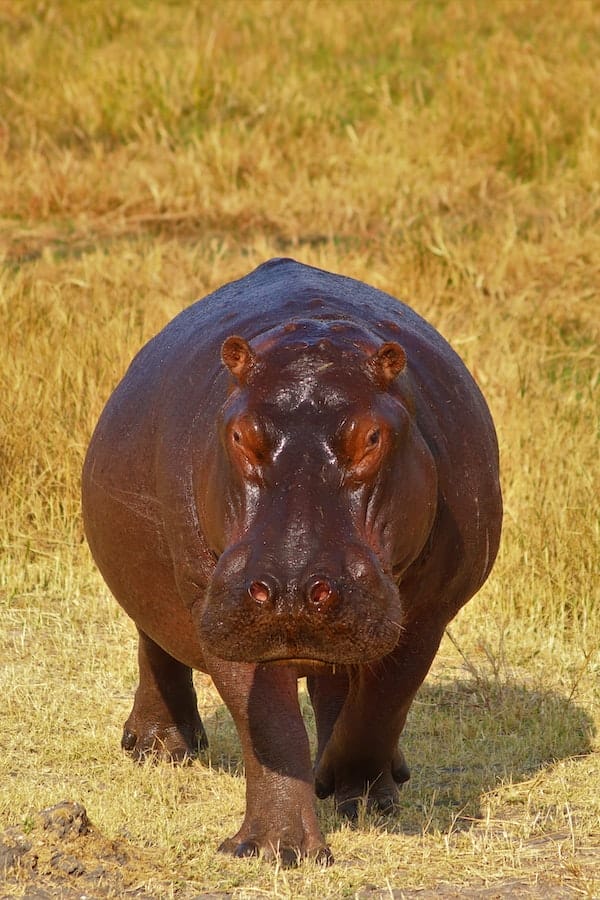
Hippos are one of the most unique and fascinating animals in the world.
They have been around for millions of years, but sadly they are now endangered due to human activities such as poaching and habitat destruction.
Despite their large size and intimidating appearance, hippos can be surprisingly gentle and playful creatures that form their own complex social structures within their herds.
Here are some other interesting facts about these extraordinary animals that you may not know.
Fact #1: Hippos are large, semi-aquatic mammals that are native to sub-Saharan Africa.
Hippos are the third-largest living land mammal, after elephants and rhinos.
They can weigh up to 3 tons and measure up to 16 feet in length!
Despite their immense size, they are actually quite good swimmers and have been known to swim up to 8 miles at a time.
Hippos typically inhabit rivers and lakes in sub-Saharan Africa, where they feed on grasses and aquatic plants.
They have been known to stay submerged underwater for up to five minutes at a time while they feed.
Fact #2: Hippos are the third largest land mammal, after elephants and rhinos.
Hippos are the third largest land mammal, after elephants and rhinos.
They have a bulky body shape with short legs and an enormous head with small eyes and ears.
Their skin is thick and rubbery to protect them from the sun’s harmful rays and contains unique glands that secrete oils to keep their skin moist.
Hippos can weigh up to 3 tons and measure up to 16 feet in length.
Fact #3: An adult hippo can weigh up to 8,000 pounds and measure up to 16 feet long.

An adult hippo can weigh up to 8,000 pounds and measure up to 16 feet long. This makes them one of the largest living land mammals in the world.
Hippos also have an impressive lifespan ranging from 30 to 50 years!
While they are quite bulky, they have surprisingly nimble feet that allow them to maneuver around easily.
Fact #4: Hippos are herbivores and primarily eat grasses and aquatic plants.
Hippos are herbivores and primarily feed on grasses and aquatic plants.
They spend up to 16 hours a day grazing on land and in the water.
Although they can consume up to 80 pounds of food per day, hippos usually stay close to the same area when feeding due to their slow digestion.
Along with grasses and aquatic plants, hippos will also occasionally consume small amounts of fruit, bark, and roots.
Fact #5: Hippos are highly aggressive and are known to be one of the most dangerous animals in Africa.
Hippos are highly aggressive and are considered to be one of the most dangerous animals in Africa.
They can get very territorial and have been known to attack humans and other animals if they feel threatened.
Female hippos are particularly protective of their young, so it’s best to keep a safe distance when encountering one with a calf.
Hippos also possess powerful jaws that can cause serious injury or even death if provoked.
Fact #6: Hippos are excellent swimmers.
Hippos are excellent swimmers, despite their bulky body shape.
They can hold their breath for up to 5 minutes and have been known to travel up to 8 miles in a single journey!
Hippos typically inhabit rivers and lakes, where they feed on grasses and aquatic plants. They also use water as a means of protection from predators, such as lions and crocodiles.
- Related post: A Comprehensive List of Cute Hippo Names
- Related post: Animal names starting with H
Fact #7: Hippos are highly social animals and form complex social structures within their herds.

Hippos are highly social animals that live in large herds of around 10-30 individuals.
They form strong bonds with each other and have been known to demonstrate affection through head rubbing, trunk intertwining, and vocalizations.
Females usually take on a leadership role in the herd, while males defend their territories from other males.
The social structure of hippos is complex and fascinating to observe.
Fact #8: Female hippos give birth to a single calf after a gestation period of around eight months.
Female hippos usually give birth to a single calf after a gestation period of around eight months.
At birth, the calf weighs approximately 55 pounds and is able to swim within minutes of being born.
The mother hippo will fiercely protect her calf from predators and other threats in the wild. Calves typically stay with their mothers until they reach two years of age.
Fact #9: Hippos are incredibly intelligent animals.
Hippos are incredibly intelligent animals that have adapted to their environment in remarkable ways.
They are capable of learning new behaviors quickly and use sophisticated communication systems with each other.
Hippos also recognize individual members of their own species and can remember their location for years.
This is just one of the many amazing traits that make hippos such fascinating creatures.
Fact #10: The lifespan of a hippo is around 40 years in the wild and up to 50 years in captivity.
The lifespan of a hippo is around 40 years in the wild and up to 50 years in captivity.
In the wild, their life expectancy is greatly affected by predation, disease, and environmental factors.
In zoos and other protected environments, however, they can live for up to 50 years or more with proper care.
Fact #11: The primary predators of hippos are lions, crocodiles, and humans.
The primary predators of hippos are lions, crocodiles, and humans. Lions typically hunt young or ill hippos, while crocodiles ambush them in the water.
Humans also hunt and kill hippos for their meat and ivory tusks, which can be sold on the black market.
This has significantly reduced the population of hippos in recent years, making them an endangered species.
Fact #12: Hippopotamus is the Greek word for “river horse.”

The hippopotamus is the Greek word for “river horse.” This name was given to them due to their large size and semi-aquatic lifestyle.
Hippos are closely related to horses and other ungulates, although they have adapted to live in a watery environment over millions of years of evolution.
Fact #13: Hippos secrete a red-colored sweat that acts as a natural sunscreen.
Hippos secrete a red-colored sweat that acts as a natural sunscreen. This substance helps protect their skin from the harsh African sun and keeps them cool in hot temperatures.
Sweat also has antibacterial properties, which help prevent skin infections.
Overall, hippos are fascinating animals that have adapted to their environment in remarkable ways.
From their powerful swimming abilities to their social intelligence, they are truly one of nature’s great wonders.
If you ever get the chance to observe them in their natural habitat, be sure to take it! You won’t regret it!
- Does Cat Litter Melt Ice? The Complete Guide to Winter Safety - January 30, 2026
- Happy Tail Dogs: Understanding This Common Canine Condition - January 29, 2026
- How Cold Can Outdoor Cats Handle? Feline Winter Safety - January 27, 2026


GIPHY App Key not set. Please check settings